Flying bullets and eyeball soup: How Peace Corps enriched Shrewsbury teacher's life
In 1962, Don Yates had just set foot in a remote part of the Philippines to start a two-year stint with the newly founded Peace Corps when he encountered tragedy.
Three villagers went “running amok” — they attempted a superstition-fueled killing spree once rooted in parts of the South Pacific (the term was coined by Captain James Cook during a 1770 stop in Malaysia). Two of the attackers wound up gunned down by police. Yates and his Peace Corps roommate, who were on their way to dinner with the village mayor, nearly got caught in the crossfire.
“That was as close as I’ve come to taking a bullet,” said Yates, now 83 and a Shrewsbury resident. “That does stay with you.”
Dinner with the mayor got rescheduled, and when it finally happened, Yates found himself thoroughly enjoying what he thought was soup with an olive in it.
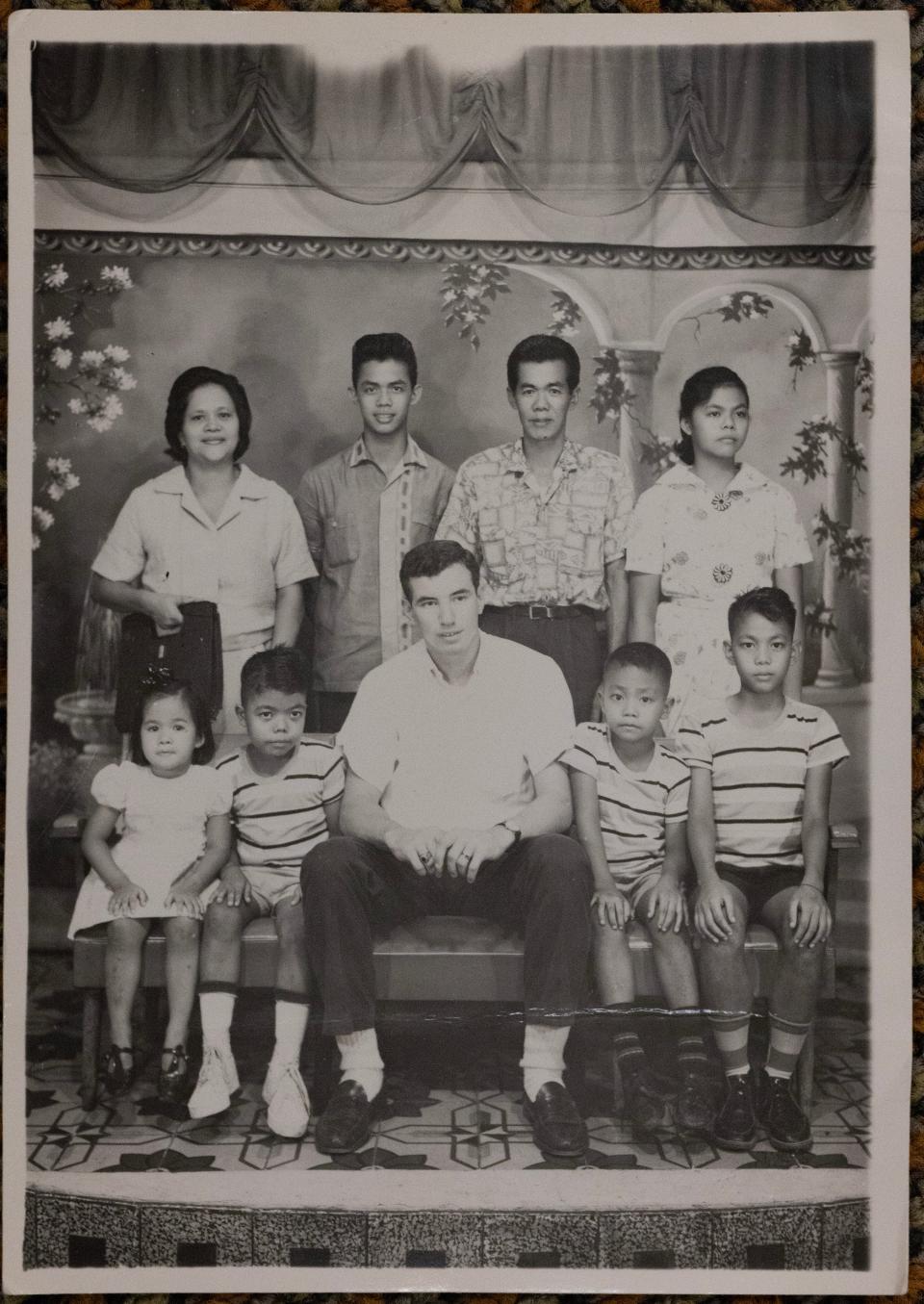
Only that wasn’t an olive.
It was a sheep’s eyeball.
“It was a little crunchy, but I got it down and when I found out what it was, I turned green,” Yates recalled.
Flustered, he picked up the banana leaf on his plate and ate it. Except it wasn’t on his plate — it was his plate, and not supposed to be consumed. He never forgot the way the mayor and the other local guests reacted.
“The rest of the people at the table all picked up their banana leaf and started eating it so I wouldn’t feel embarrassed,” Yates said. “They didn’t want you to lose face.”
Stories like these are the heart of Yates’ recently published book, “A Journey for Peace, A Journal of Peace: Episodes of Life from an Early Peace Corps Volunteer.” A brisk 121 pages, it’s based on a diary Yates kept, letters he sent home and photos that he saved. The experience spurred a 56-year career as an English teacher, principal and college professor (among his employers: Georgian Court University and Brookdale Community College). At every stop, lessons learned in the Philippines helped him connect with students.
“It helps you grow,” Yates said. “You get out and broaden yourself, see how other people live and how they cope with things.”
Changing a young life
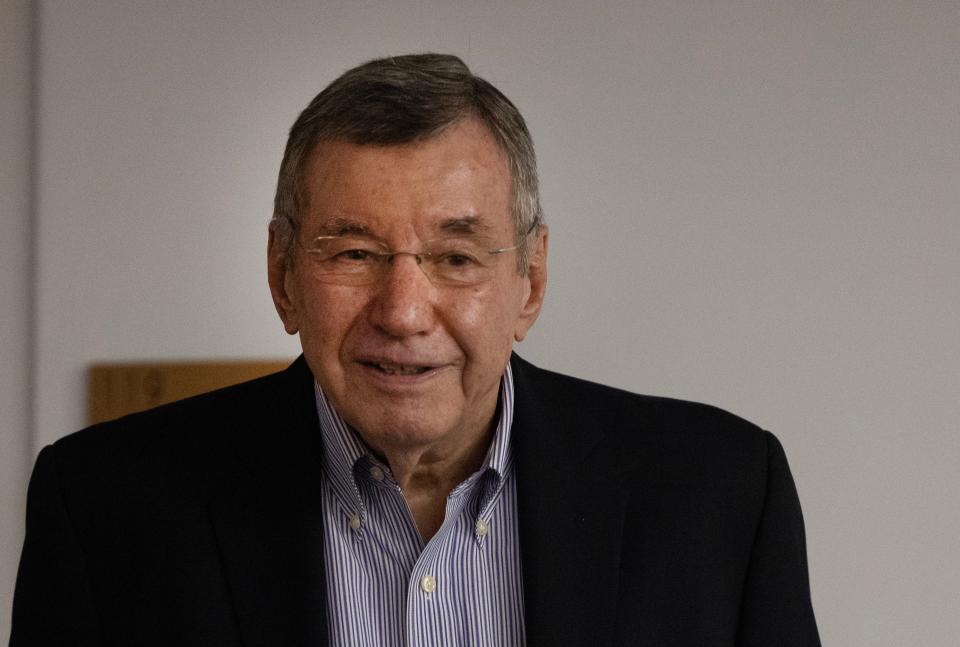
After President John F. Kennedy launched the Peace Corps, the first wave of volunteers arrived in the West African nation of Ghana in August 1961. Yates, fresh out of Notre Dame, arrived in the southern Philippines island of Jolo a year later. The locals had not seen a westerner since the U.S. military liberated the country late in World War II.
Sent over there with precious little training and no background in the customs or dialect, Yates didn’t have a place to live. His hut was unfinished, so an elder nicknamed Tex took him in until the home was completed. Tex put Yates up in his bedroom while he slept on the kitchen floor — “and his wife would sleep under the house with the cattle!” as Yates wrote.
Tex’s house was on stilts, but still the arrangement seemed stunning to the young American. Tex’s wife “thought nothing of it,” he wrote. It was the first of many culture-shock moments.
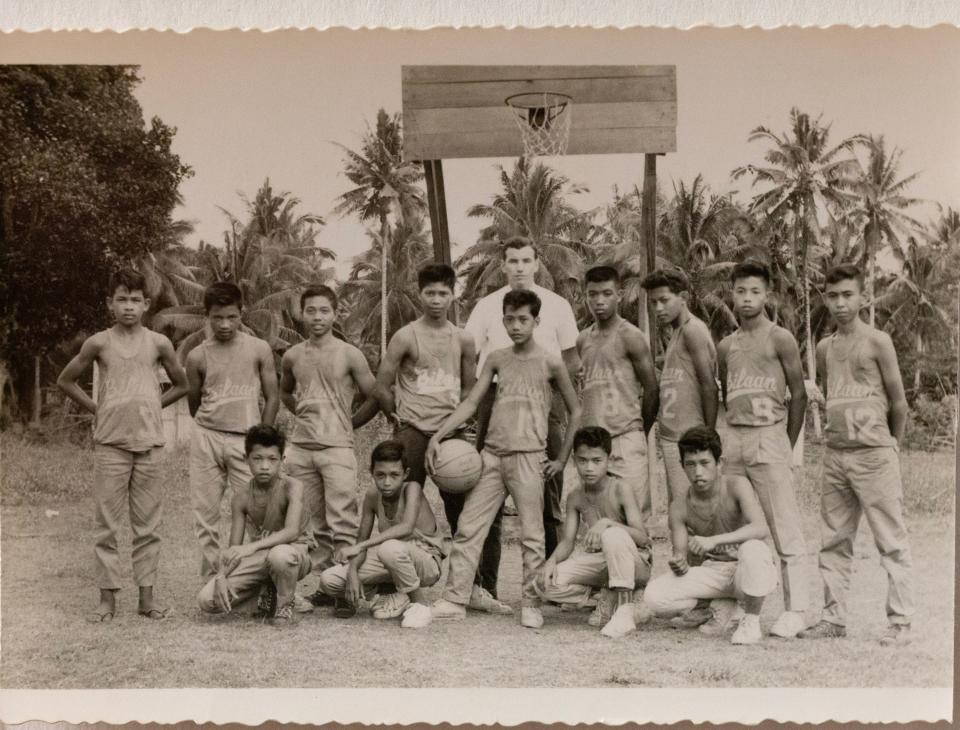
The rewards, however, were more numerous than the stumbling blocks. Yates taught English and science at the village school, introduced his students to basketball, and got to know their families well. He recognized a precocious but poor sixth-grader named Bindo Alpa and paid for him to attend the privately-run Jolo High School, buying his books, uniform and arranging housing — basically becoming the boy’s de facto guardian. They wrote each other for a few years after Yates returned to the states; Bindo went to college on a scholarship and a career in the military.
They eventually lost touch, but reconnected this summer after the book was published. Bindo is retired from the military and living on the large Philippine island of Mindanao. His success is a rewarding coda to Yates’ Peace Corps odyssey.
“If you only touch one person in your life, it’s a successful life,” Yates said. “Hopefully I have touched a lot more than that because I’ve been in education my whole life.”
'On the cutting edge'
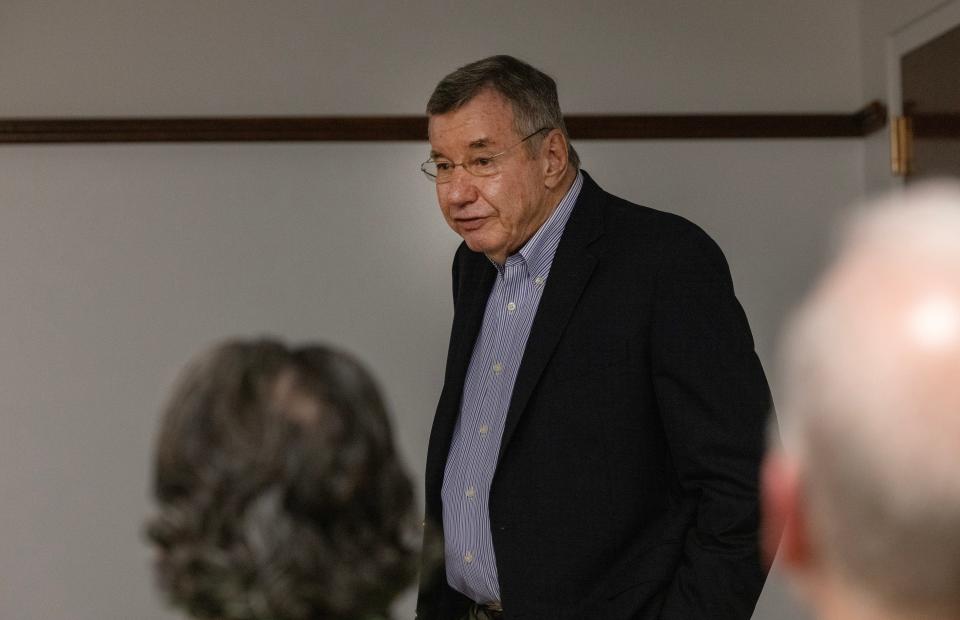
Yates hopes his book inspires young people to broaden their horizons, and adds to the canon of reflections on the Peace Corps. To that end, he’s involved in an ongoing oral history project for which he interviews more recent Peace Corps alumni about their journey.
“My main takeaway is that they had it a little easier than I did, and I let them know that at the end of the interview,” he said with a laugh.
Yates often is asked if he’d like to return to Jolo, but he said the island has fallen under the influence of al-Shabaab, an Islamist insurgent group hostile to Americans. He does take pride that the Peace Corps remains present elsewhere in the Philippines and throughout the developing world.
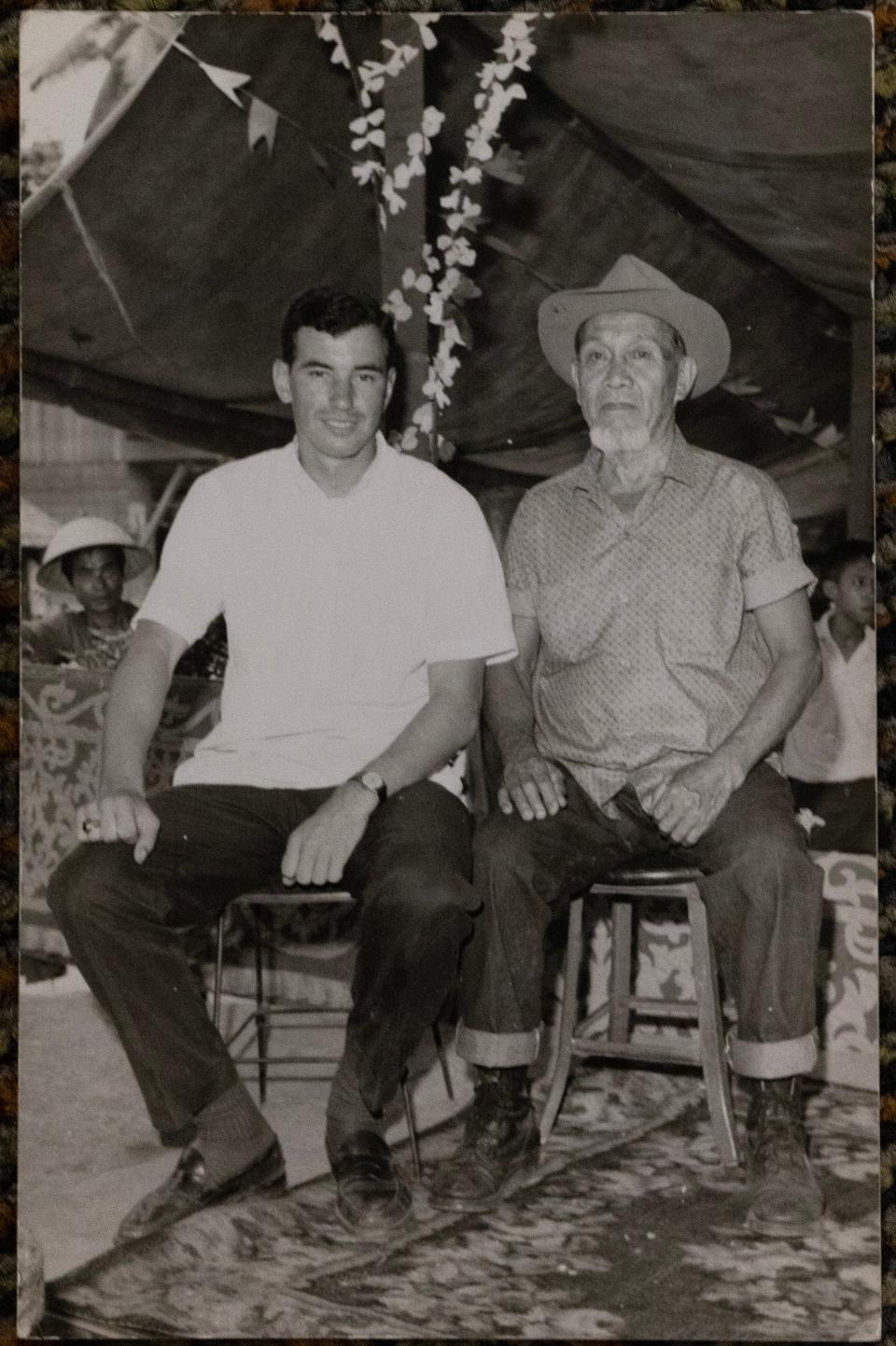
“The fact that there is still an interest in working toward the ideals President Kennedy established for us as Americans — there is still a draw to be in the Peace Corps — I feel good about that,” he said. “I was on the cutting edge of something historical.”
Jerry Carino is community columnist for the Asbury Park Press, focusing on the Jersey Shore’s interesting people, inspiring stories and pressing issues. Contact him at jcarino@gannettnj.com.
This article originally appeared on Asbury Park Press: Peace Corps experience in Philippines enriched Shrewsbury man's life

